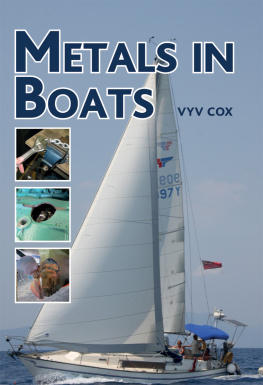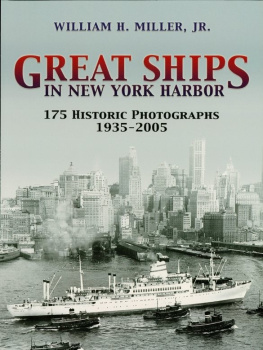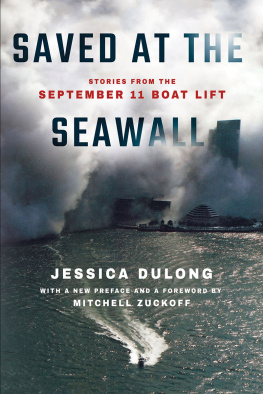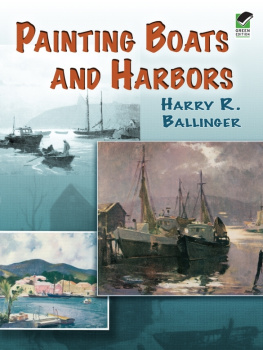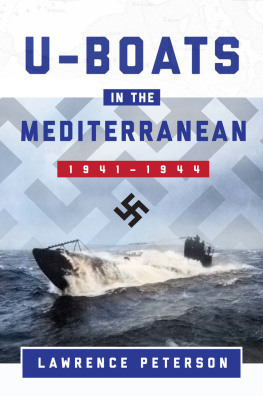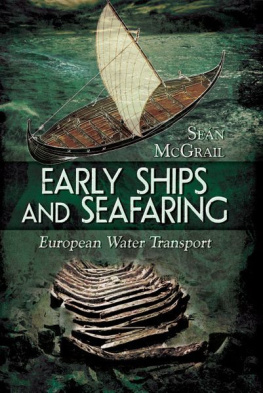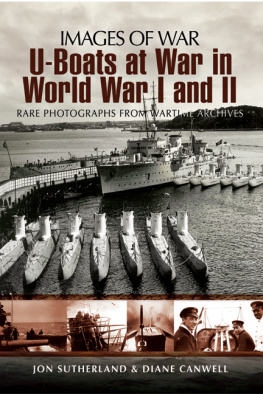Acknowledgments
This book has been great fun to work on. The subject is interesting, and the people in tugboating almost without exception talked freely and enthusiastically about their world. I was made to feel welcome by an amazing variety of folks in the industry in all roles. I just wish I had been able to accept all the invitations to ride that I received!
Thanks must go to Andy Chase, of Maine Maritime Academy, who has snuck into other pieces Ive written, but for this one, his role has been primarily as a connection to peopleand wonderful people too. (It has been interesting just finding the people sometimes, as the active sailors are away from home half the time or more, and phone numbers dont always work. For instance, one number became inoperative when its owner dropped his cell phone overboard. Hazards of the trade.) Andy says hell take a million bucks for his help. I have told him he can have the second million that any one of my books makes me, and here is my promise in print. I admit I dont expect to have to give him any money, but I suspect and hope it will be the schooner Bowdoin who benefits if it ever should happen.
And to John OReilly, one of many folks that Andy hooked me up with, I have to give particular thanks. Right up to the end, John went far out of his way to answer my questions, read chapters, and write descriptions and explanations. He did all this during the two weeks he was home each month, when I know he had plenty of better things to do. I have to thank his wife, Moe, too.
Jim Sharp, too, read through much of the draft and worked hard with me on bits of it. He also made some important connections for me. And my old friend Roland Aldridge, who didnt think he had any interest in tugboating and knew nothing whatever about it, leapt in to give a few chapters a read when I needed a read made. Im hoping maybe he looks at tugs differently now. Or at least looks at them.
Dave Boone, Arthur Fournier, Bob Hill, Steve Lang, Bob Mattsson, Don Sutherland, Franz VonRiedel, and all the rest of the photographers and collectors of images certainly contributed tremendously to the book. The folks at K-Sea Transportation Partners, and in particular the guys on the Adriatic Sea in May of 2002, I must thank for their generosity and friendliness.
Then theres Hugh Ware. At the last minute, he volunteered to help with pulling together the mess of disconnected pieces I had amassed, and he has done an amazing job. If this book has any cohesion, it is he who must be given credit. Thank you, Hugh. And it was always a pleasure working with you.
As always, I have to thank my husband, Phil Roberts, who didnt always want to spend a day as I wanted or felt I needed to for this book, and who kept things going at home while I went off riding tugboats. (To be sure, sometimes he got in on the fun, too.)
I hesitate to name anyone else as there are so many people who have been extremely helpful; I couldnt begin to mention all and wouldnt want to imply a ranking. But I sincerely thank you, every one! Most of you appear in the book by name; those few who dont will undoubtedly know why, as you spoke of sensitive matters that are best presented without attribution. I most certainly appreciate your candor.
The people I write of and the tales they tell are not unique. Rather, they are typical of tugboaters, and my goal in writing this was to show, by their example, what their world is like. While I cant express fully enough my gratitude to each of these people, the fact is that its happenstance that I spoke with them and not with others in the industry who have their own interesting and exciting stories to tell. To those with whom I didnt have the fortune to cross paths, I can only say, I wish I had!
Authors Note
There are tugboats all over the planet, doing all manner of jobs, and I make no pretense to covering or understanding each of them or all their jobs. I live in Maine, and I admit there is perhaps a disproportionate degree of Maine connection in this book. I defend myself on a number of levels, the most obvious being that Maine is convenient to me. But also, Maine has an important and continuing maritime tradition, no small part of which relates to tugboating. In Castine, Maine has an excellent maritime academyfor a long time, the only one in the United States to offer hands-on tug-and-barge classesand many Maine Maritime alumni are in tugboating today, all over the country. Many hawsepipers come from Maine, toomen and women who started working on deck and made their way up to captaincy; some live in Maine today, and some dont. And finally, while Maine has no monopoly on fun projects, it perhaps does have more than its share. The Maine stories included here undoubtedly exemplify those which can be found on the water wherever tugs are active.
The matter of nomenclature always comes into any maritime book, and tugboat folks can be just as concerned about it as any other group. Take the term captain, for example. Merchant vessels are commanded by a masterCaptain is a courtesy title. One tugboat master asked that I not refer to him as Captain, as he had only a 1600-ton Near Coastal license and was just running what he called a little 120-foot boat. Some of the other people I interviewed were no doubt licensed as Unlimited Masters of All Oceans but were working in another capacity and I therefore do not refer to them as captains. I wear a lot of hats, the above master said. Today Im a captaintomorrow Ill be a painter. He has a Coast Guard masters license, albeit a relatively limited one, and the honorific that goes with that is Captain, but he didnt want to make anyone unhappy. I asked the same fellow whether protocol would suggest that I refer to a young licensed master as Captain, even if he has not yet worked in that position. His response was that the man had earned the license, and deserved the respectful appellation. Some people take this stuff very seriously, and not always with consistency. Certainly the licenses themselves are serious, and I hope Ive offended no one by the way Ive used the word captain.
I understand that theres a big deal about licenses, endorsements and documents, too. The world of tugboatingof all maritime endeavor, for that matteris full of credentials. I can only apologize up front for using license when in fact the particular piece of paper that defines a persons position or legal capability is a document or an endorsement. In common English, document doesnt carry the same strength of meaning as does license, and endorsement means something else entirely. To be honest, Im not always clear myself which credentials are which.
A relatively simple nomenclature issue is the use of the terms tugboat and towboat. On the rivers, the large boats invariably push barges and are called towboats. The term tug is reserved on the rivers for smaller boats that assist in moving barges in and out of docks and through particularly tricky passages. On both oceans and in the Gulf of Mexico, the two terms are often used interchangeably, and a person who works on one of those vessels might be called either a tugboater or a towboater.
Ive learned a great deal about tugboating during the time Ive spent researching this book, but undoubtedly I have gotten some facts and details wrong. If Ive attributed an erroneous concept to someone else, Im sure its my error, not his.
Often I shall use he when what I mean is he or she. The fact is, far more men are involved in tugboats than women, and it is simply convenient to refer to unnamed people in the masculine, but this in no way is meant to ignore or disparage the members of my own gender who are in this world. The convention also makes it easier to distinguish between people and boats, which are almost always feminine. I admit Im amused by the confusion in gender that can appear in talking about boats and their people. Vessels are apparently anthropomorphized and sometimes called he when whats meant is the captain or personnel, as in The


